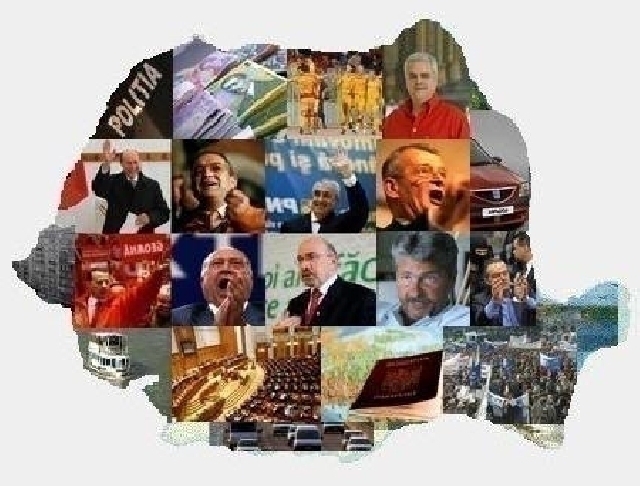The Week in Review 22 – 28.06.2015
A roundup of the week's main stories

Corina Cristea, 28.06.2015, 12:35
The National Defense Strategy
Romanias Parliament on Tuesday adopted the National Defense Strategy for 2015-2019, previously introduced by president Klaus Iohannis. The president says the strategy is aimed at safeguarding the fundamental rights, liberties and safety of the citizens, in such fields as economy, education, health care or the environment. The Strategic Partnership with the United States, and Romanias NATO and EU membership are the main pillars of our countrys foreign and security policies. Also on Tuesday, parliament adopted the setup of two NATO structures in Bucharest – the NATO Force Integration Unit and the NATO Multinational Divisional Command.
Romania to host US heavy weaponry
Romania is on a list of Baltic and Central-European states where the United States will pre-position 250 tanks, Bradley fighting vehicles, self-propelled howitzers and armored combat gear. The US State Department says the measure is aimed at supporting training exercises carried out by military units rotating on NATOs eastern flank. Some 1,000 military from 25 NATO countries have taken part in an over-arching NATO collective defense exercise in Cincu Range in Brasov County. For the first time, as part of the exercise, two NATO Joint Allied Command structures were relocated to Romania, while the NATO Response Force Command and Control was relocated temporarily to Romania.
Romanias Defense Minister attends the NATO summit in Brussels
NATO Defense Ministers decided to extend NATOs Response Force to 40,000 from the current 13,000, Romania being one of the seven nations to lead this force. Attending the NATO summit in Brussels, Romanian Defense Minister Mircea Dusa said immediate action must be taken to open a NATO Liaison Office in Chisinau. The Romanian official also expressed Romanias firm position regarding the political independence, the sovereignty and territorial integrity of Ukraine within its internationally recognized borders.
Fiscal relaxation measures in the new Fiscal Code
Romanian MPs on Wednesday adopted the new Fiscal and Fiscal Procedure Codes, which are to come into force on January 1, 2016. The Chamber of Deputies is the decision-making body in this case. Among the provisions of the new codes is also the VAT cut from 24 to 19% as of next year, the elimination of the tax on special constructions as well as the excise duty on fuel. The authorities also want to eliminate the 16% tax on income-derived dividends. The IMF and the European Commission have warned on the risks associated with the introduction of these fiscal relaxation measures. Romania risks exceeding the budget deficit target stipulated by Romanias ongoing standby agreement with the IMF. The measures will also trigger a temporary budget deficit growth, although no higher than 3% of the GDP, Finance Minister Eugen Teodorovici has said. After sitting down with European experts in Bucharest, Minister Teodorovici said the authorities failed to reach an agreement with European Commission representatives on the new Fiscal Code. The matter will be discussed at a meeting of the EU Economic and Financial Affairs Council on the 14th of July.
Romanias new election law Also on Wednesday, the deputies passed a new parliamentary election law which reintroduces the proportional representation system, maintains the 5% election threshold and establishes the rules for the allocation of seats depending on the number of voters. The Chamber of Deputies has decision-making power in this case. In 2016, Parliament will have 134 senators and 308 deputies as well as 18 representatives of ethnic minorities with the exception of the Hungarian minority and 6 MPs representing the Romanian communities abroad.
The case of Prime Minister Victor Ponta
The European Parliaments Committee on Civil Liberties, Justice and Home Affairs on Thursday discussed the case of Romanias Social Democrat prime minister Victor Ponta, following a Parliament vote in Bucharest to reject a request by the National Anticorruption Directorate to strip him of his parliamentary immunity. Prosecutors had requested Parliaments approval to start criminal investigations against the prime minister over a suspected conflict of interest. The prime minister is already under investigation by the anticorruption body for forgery, complicity in tax evasion and money laundering, all of which he is suspected of having committed during his time as a lawyer. At the moment, the prime minister is recovering from a knee surgery, with deputy prime minister Gabriel Oprea acting as the temporary head of government.
President Klaus Iohannis attends the summer meeting of the European Council
After intense talks on urgent community matters, EU leaders agreed to relocate 40,000 immigrants from Greece and Italy to other EU countries over the next two years, with home affairs ministers expected to draw up a final scheme by the end of July. A further 20,000 people will be resettled. This is one of the decisions taken at the summer meeting of the European Council, where Romania was represented by its president Klaus Iohannis. Before flying to Brussels, he appointed Mihai Razvan Ungureanu as the head of the Foreign Intelligence Service. Ungureanu chaired the service before, between 2007 and 2012, and also served as foreign minister between 2004 and 2007 and as a prime minister in the first half of 2012.



























